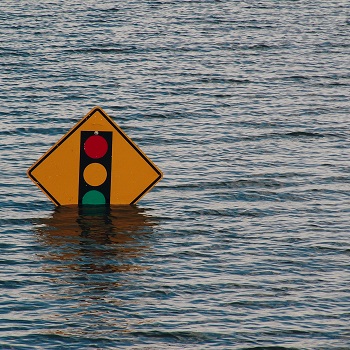Is Europe’s Drought a Symptom of Climate Change?
Driving across the rolling farming country of northern and central France, as my wife and I have just done, you might think that French arable farmers have never had it so good. Grain prices are high and the landscape as far as the eye can see is bright yellow with rapeseed and brilliant green with wheat, barley or potatoes, the very picture of a healthy agriculture.
It’s not really healthy, of course. Unless rain falls within the next week or so those rolling hectares will lose their bloom. Drought has hit the cereal regions of the UK, France, Germany and Poland, which together account for two-thirds of European grain production. Already forecast yields for wheat, barley and rape are down by 10-20 per cent, while the prospect of a dry summer threatens a greater shortfall and a further escalation in food prices, which have already gone up by 30 per cent since March.
This is bad news for Europe. High grain prices mean rising costs for milk, meat and egg production, as well as bread, beer and other cereal-based foods, putting more strain on shoppers. Food price inflation has a direct political impact which will put additional pressure on EU governments at a time when household spending is already squeezed and unemployment levels remain high.
In France 42 départements have declared water control restrictions . The Polish government has been pressing the European Commission to raise the support level for wheat in support of its arable farmers – a plea which was rejected in the recent farm ministers council.
There are unexpected consequences. As rivers levels fall or even run dry I see that French nuclear power stations, which rely on river water for cooling, may have to cut back on generation capacity.
The global picture is no more comforting. With the US also suffering from drought there is little prospect of recovery in world supplies, let alone the building of stocks, during 2011. China is also affected. Russia and the Ukraine are the only northern hemisphere producers which have decent prospects for grain production this year.
The political implications are far-reaching. All those countries which depend on grain imports to feed their people, which include most of the Maghreb and much of the Middle East, will face a further food price crisis at a time when their political systems and their economies are undergoing revolution.
A succession of climatic disasters in the US may lead to recognition in the United States that climate change is happening and that something must be done, although it is a big step to acknowledge that human activity is the driver. As for Europe, after the driest and warmest April in parts of our continent since records began the argument that our climate is undergoing fundamental change seems incontrovertible.
Find Out More
-
Why Europe needs a water resilience strategy
February 8, 2024
-
Why the EU can’t risk failure at COP27
November 4, 2022


